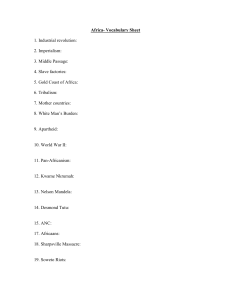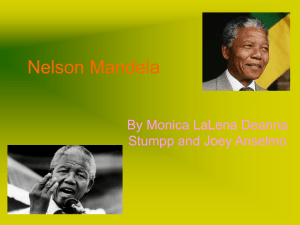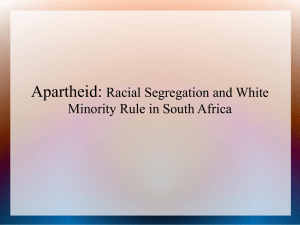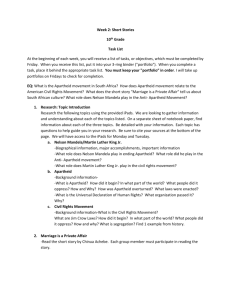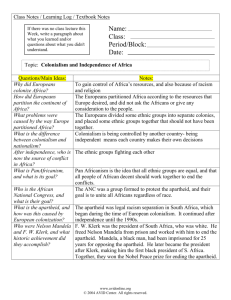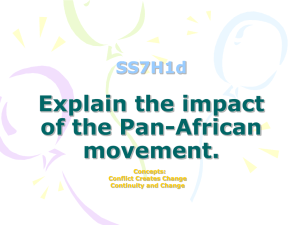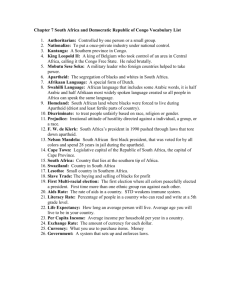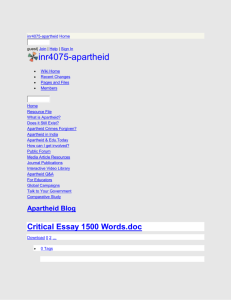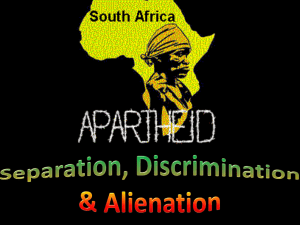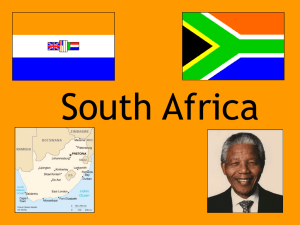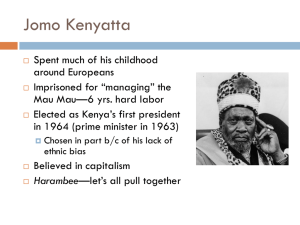South Africa Apartheid Webquest: High School Activity
advertisement
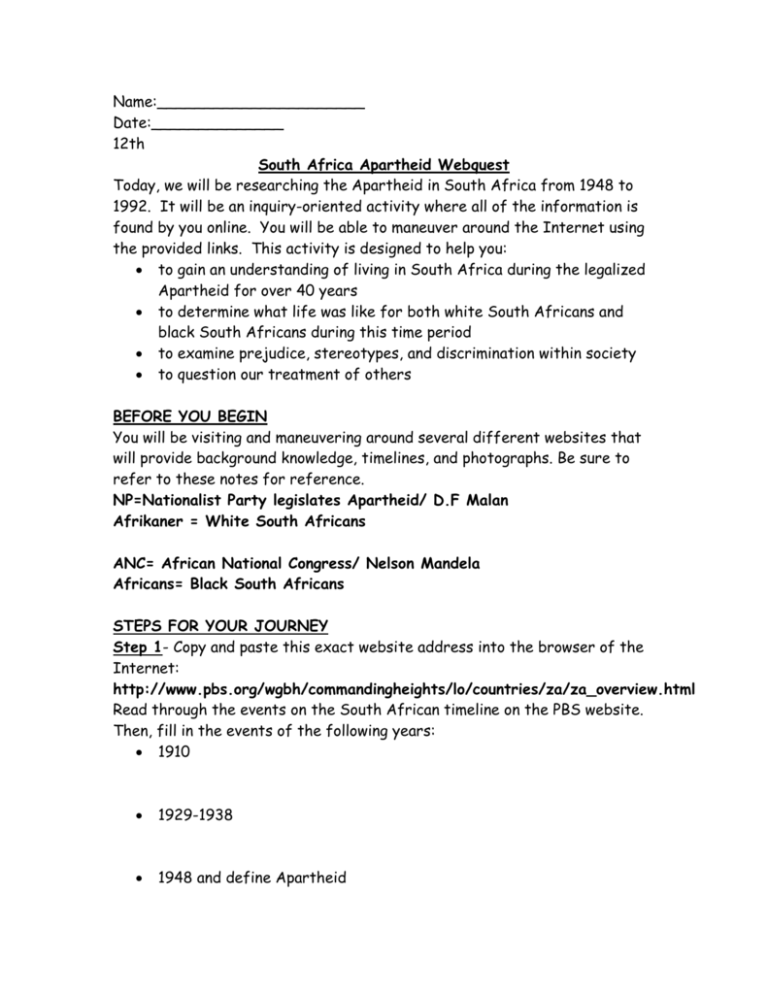
Name:______________________ Date:______________ 12th South Africa Apartheid Webquest Today, we will be researching the Apartheid in South Africa from 1948 to 1992. It will be an inquiry-oriented activity where all of the information is found by you online. You will be able to maneuver around the Internet using the provided links. This activity is designed to help you: to gain an understanding of living in South Africa during the legalized Apartheid for over 40 years to determine what life was like for both white South Africans and black South Africans during this time period to examine prejudice, stereotypes, and discrimination within society to question our treatment of others BEFORE YOU BEGIN You will be visiting and maneuvering around several different websites that will provide background knowledge, timelines, and photographs. Be sure to refer to these notes for reference. NP=Nationalist Party legislates Apartheid/ D.F Malan Afrikaner = White South Africans ANC= African National Congress/ Nelson Mandela Africans= Black South Africans STEPS FOR YOUR JOURNEY Step 1- Copy and paste this exact website address into the browser of the Internet: http://www.pbs.org/wgbh/commandingheights/lo/countries/za/za_overview.html Read through the events on the South African timeline on the PBS website. Then, fill in the events of the following years: 1910 1929-1938 1948 and define Apartheid 1949-1958 1959-1961 1966-1972 1990-1993 1994 Step 2- Copy this exact website address into the browser of the Internet: http://www-cs-students.stanford.edu/~cale/cs201/apartheid.hist.html Read through the first 3 paragraphs describing the categories of race classification on the Stanford website. How were races categorized? Then, scroll down to the last 2 paragraphs on the page and read about the penalties. Next, study the 1978 chart at the bottom of this website. When comparing the figures in the chart, what is shocking to you about the numbers? Explain this chart in your own words. Step 3- Next, copy this exact website address into the browser of the Internet: http://africanhistory.about.com/library/bl/blsalaws.htm Read through the South African laws that formalized Apartheid. Then, summarize these laws and respond with your reaction to each law. Prohibition of Mixed Marriages Immorality Amendment Natives Act Extension of University Education Act Choose one other law. Summarize and react to it. STEP 4-Lastly, you will visit the PBS website about Nelson Mandela’s life as one of the noteworthy leaders of the ANC and Anti-Apartheid Revolution. Mandela was famously imprisoned for 27 years in an effort to stop Apartheid. Later, he became President of South Africa after his release. http://www.pbs.org/wgbh/pages/frontline/shows/mandela/ Click on the Revolutionary link on this page and read the blurb at the top of the page. Then, choose one of the links that intrigues you in order to read more about others’ accounts of Mandela’s revolutionary actions. Read, summarize, and react to one of these links. Title of link: Next, hit the “Back” button in the browser to go back to the Mandela home page on the PBS website. Click on the Prisoner link. Scroll down the page and choose to read either “The Dark Years” link or “The Most Important Person in Any Prisoner’s Life” link. Then, you will read, summarize, and react to one of these links below. Title of link: Step 5-Reflection Please close all the windows that you have opened on the computer. Please use the space below to organize your feelings and reactions to what you have learned through this webquest. "During my lifetime I have dedicated myself to this struggle of the African people. I have fought against white domination, and I have fought against black domination. I have cherished the ideal of a democratic and free society in which all persons live together in harmony and with equal opportunities. It is an ideal which I hope to live for and to achieve. But if needs be, it is an ideal for which I am prepared to die." - Mandela's statement from the dock at the opening of the defense case in the Rivonia Trial, Pretoria Supreme Court, April 20th, 1964. In a 1-page reflection, consider the aforementioned quote as you also consider your feelings or reactions to your new knowledge of the South African Apartheid. Include any other feelings or reactions that you had during this activity, but be specific.

